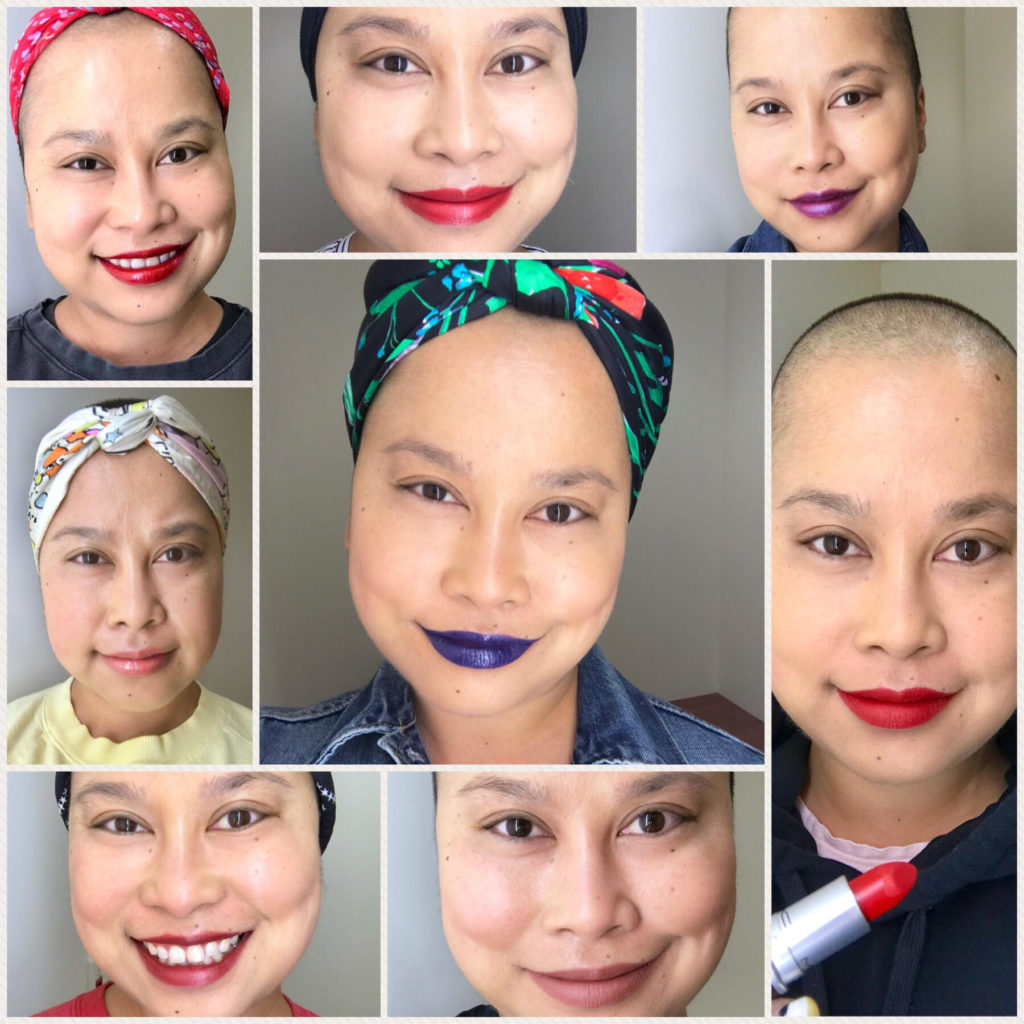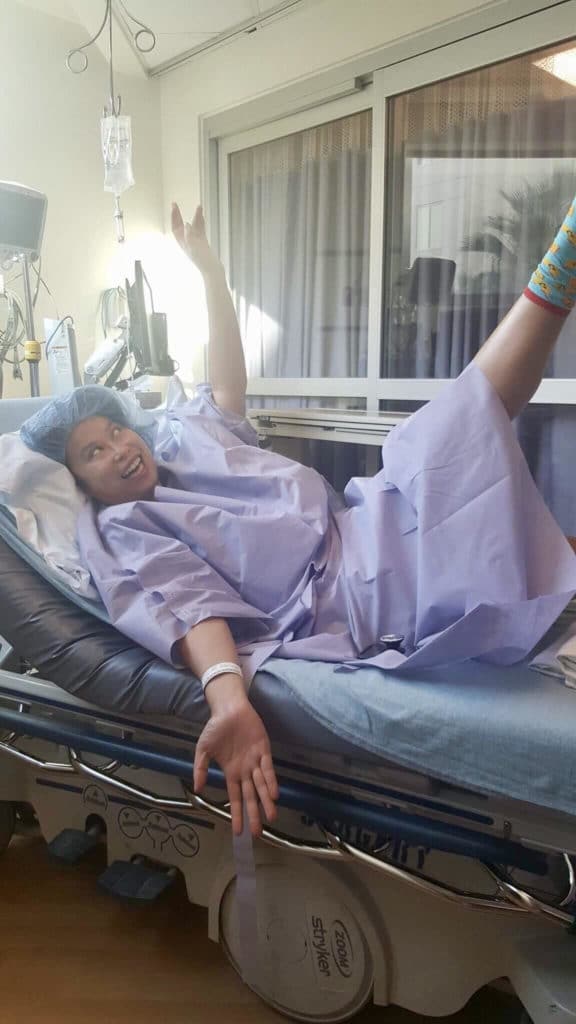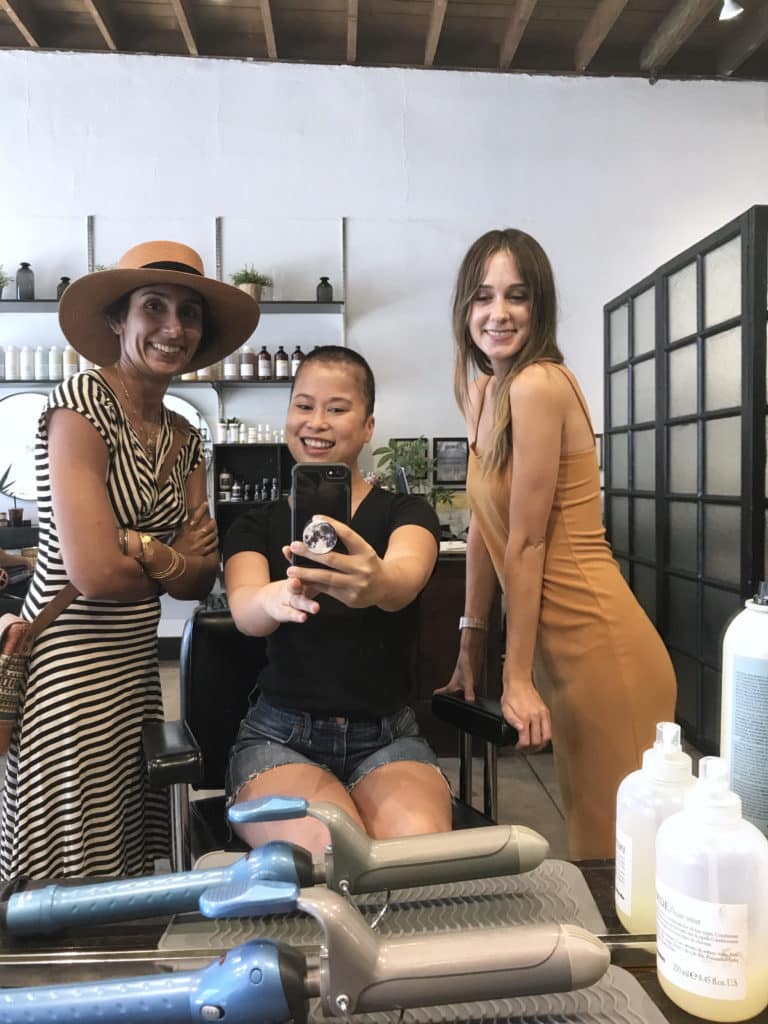Q: You were so young when you found the first lump in your breast and I understand that the main reason you’d been doing regular self-exams was that your friend was diagnosed with breast cancer in her 20’s. Do you think you would’ve noticed it if you hadn’t been inspired by your friend’s diagnosis?
A: No. In my early 20s, I had no idea what it meant to be in tune with my body. I was focused on my career, my partner, family, and friends.
I was an entry-level freelance news reporter driving between jobs in Los Angeles and South Orange County. I loved that fast-paced environment and working in a big news market. This was my priority.
I only kept up with my doctor’s appointments when my mom nagged me, and mainly went to the gym to maintain or lose weight. My annual gynecologist visit was the one time I’d be examined. When my college roommate and close friend, Leslie, was diagnosed with breast cancer in her early 20s, I knew that I had to be more proactive about self-exams.
Q: When I was that age, I’m not sure I would’ve taken a lump seriously. I might’ve chalked it up to hormones or just been in denial, honestly. What gave you the courage to really face what was happening?
A: Honestly, I didn’t take the lump seriously at first. I thought it would resolve itself after a few weeks because I’ve heard how our menstrual cycle can cause temporary lumps.
My husband and I were working with an architect to renovate our fixer-upper home and two of my closest friends, Elice and Leslie, were having weddings within two months of each other. I had a very packed social calendar! I saw my primary doctor before Elice’s wedding and she gave me the referral to have a mammogram and ultrasound in an abundance of caution. I was reassured by the statistics that young breast cancer is rare and set my appointment for a couple of weeks after Elice’s wedding.
But Leslie’s cancer made me aware that it could possibly happen to me. I just didn’t truly believe it would actually happen. So yes, there was a strange mix of denial and pragmatism at play.
Q: How did your outlook affect how you handled your diagnosis? Did you have to work at creating a mindset that recovery was the only option? Or did the fact that you were only 30 and otherwise healthy make you think, I’ve got this?
A: I was shocked by my diagnosis but also found great strength in knowing that Leslie had found her way. While all of this was happening, I had just landed my dream job on a project at the LA Times. I had my first interview on the day of my biopsy. The day I met my oncologist, I had my second interview. A couple of days later, they offered me the job. It was a whirlwind!
At the time, I was in survival-mode. I was reacting to things as they came and my strategy was to focus on my new job because that was the light at the end of the tunnel in the midst of deciding between treatment options, awaiting genetic testing results, undergoing fertility preservation, and preparing for surgery.
Ultimately, there was a change in leadership and I was laid-off from that position after the first month. But for that intense period following my diagnosis, I’m thankful that I had a meaningful project to keep me focused on a bright future.
Q: Did your outlook change when you found the second lump? Was there a moment of disbelief or feeling like it wasn’t fair? If so, how did you get out of that rabbit hole?
A: There was a moment of disbelief. I was sure I had done my time in the prison that was cancer. It was never seemed like a possibility that it would happen again because my doctors told me it was unlikely.
Once the diagnosis sunk in, I decided that my attitude had to change and I was going to take things one day at a time. If I wanted to live an extraordinary life full of amazing experiences, then I had to accept that extraordinary negative things could happen as well. I took the second diagnosis as an opportunity to learn more about myself and reframe not just my lifestyle but my inner world. They say that stress can cause cancer and that’s how I lived 24/7.
Instead of getting back to pre-cancer Lindsey, I knew that she didn’t exist in the same way after this experience. I gave myself space to feel all the feelings. I simplified my priorities. I didn’t cope by taking on a new project. I used social media to write my way through treatment instead.
In the process, I came across IG’s breast cancer community and found them to be an invaluable source of support. We all posted about our experiences during treatment, shared resources, and exchanged messages. It was a convenient support group easily accessed from the comfort of my couch or the chemo chair.
Q: How has being a cancer survivor changed your relationship with yourself? How do you operate differently now?
A: I used to be a type-A person; a very detail-oriented planner, which made me super anxious and stressed. I was always thinking ahead. I didn’t know how to hold space for myself. The second time I was diagnosed, I thought hard about the parts of me that could have contributed to the conditions that allowed cancer to thrive.
I worried a lot, was highly self-critical, and had always been a people-pleaser. I put 110% into everything I did. I realized I had to dial it back. I’ve learned how to go with the flow and to trust my instincts. I’ve gained the confidence to recognize that I’m always enough.
Q: What has being part of the breast cancer community meant to you?
A: It has helped me get through the hardest times. Connecting with the breast cancer community on Instagram helped me see that there were other young women rebuilding their lives post-diagnosis. I know I’m not alone in my struggles and that there’s always a way forward.
When I was first diagnosed, I tried to join a young adult in-person support group for people dealing with cancer at any stage. The logistics made it hard to attend but I remember there being someone in the group with Stage 4 cancer, and it made me very uncomfortable. At the time there was no room for me to hold space for that situation, and it took time to accept that aspect of treatment.
Using Instagram helped me process my experience while raising public awareness about the realities of active treatment and recovery. I was able to communicate my thoughts from the convenience of my living room no matter how I was feeling. Over time, I met other women (and men) facing similar diagnoses. Their stories assured me I wasn’t alone and gave me the courage to create an empowering platform for healing. It has changed my life and helped me find my passion for building communities around health and wellness.
Q: What’s the biggest lesson you’ve learned from your experience and what would you tell young women in the beginning stages of their own journeys with cancer?
A: I’ve learned how to take better care of myself. If I need rest, I don’t it fight anymore. I make physical activity a priority. My relationship with food is changing. I view it more as medicine now. I take time to be more mindful in daily life. Instead of shying away from compliments, I take pride in my accomplishments. I recognize mental health is just as important as physical health. The emotional impact of a cancer diagnosis is arguably more difficult than getting through the physical challenges of treatment. It takes much longer to recover from that part than you might think.
I’d advise any young woman recently diagnosed to take life one day at a time. Whether she knows it or not, she’s in survival mode and the priority should be to give herself the best possible conditions for healing.
I’d say, accept help from family and friends. Be vocal about what you need and don’t need. Look to resources in the cancer community that will make your experience a little easier. Explore new ways to stay grounded, like meditation, yoga, coloring, peer support groups, and talk therapy. Most importantly, celebrate everything–even the smallest achievements. This will make joy a part of your daily life.



Thanks very nice blog! http://Oldehickorytaproom.com/
Thank you for your support!